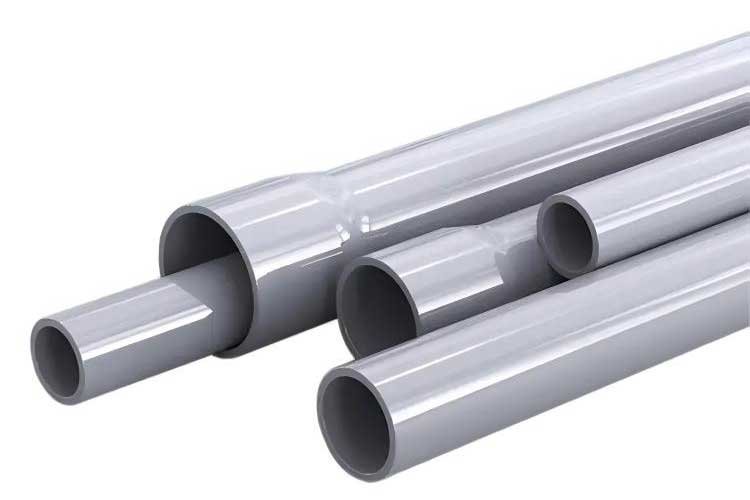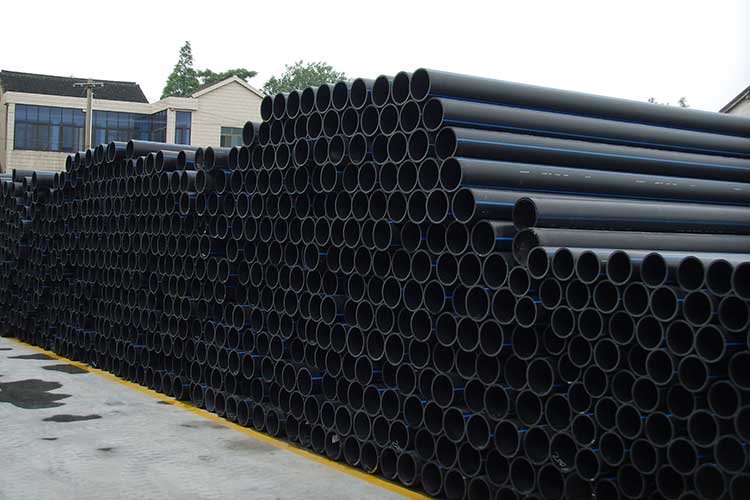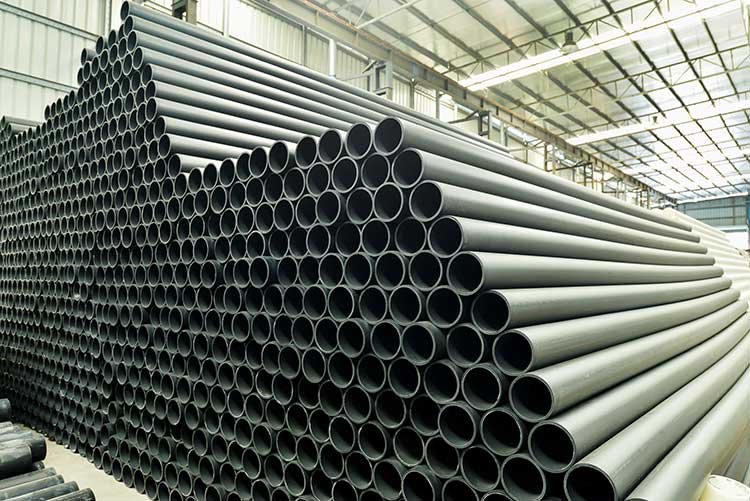Many people often confuse PVC pipe and PE pipe. First, they look very similar, so anyone could make this mistake. However, they are not the same.
Understanding the differences and functions of the two will help you choose the engineering pipes you need for your project and help you prioritize safety and cost.
As one of China’s leading PE pipe manufacturers, we will help you distinguish between these two important pipes.
What is PVC Pipe?

PVC pipes are plastic pipes made of polyvinyl chloride (PVC) resin as the main raw material. They are light, corrosion-resistant, and have strong pressure resistance!
What Is a PE Pipe?

PE pipes are plastic pipes made of polyethylene (Polyethylene). They are corrosion-resistant, flexible, and have a long service life. They are widely used in water supply, gas, agricultural irrigation, and other fields.
Difference Between PVC Pipe and PE Pipe

There are significant differences between PVC pipes and PE pipes, the most obvious of which are:
Raw material differences
PE pipe: Made of polyethylene (containing only carbon and hydrogen atoms), it has high chemical stability, is chlorine-free, and is more in line with food-grade safety standards. PVC pipe: Made of polyvinyl chloride (containing chlorine atoms), it may contain heavy metal stabilizers such as lead, so be aware of environmental protection
Hygienic performance
PE pipes have fewer additives and are FDA-certified for food grade, making them suitable for drinking water transportation. PVC pipes must be stabilized with calcium and zinc to meet hygiene standards.
Método de conexión
PVC pipes: These are primarily joined using glue (socket and spigot bonding), flexible rubber ring connections (for large-diameter pipes), or threaded connections (for small-diameter pipes). These connections require specialized glue and require a high level of skill.
PE pipes: They are primarily connected using hot melt (butt-melt, socket-melt, and electric-melt) or mechanical connections (such as flanges and clamps). Hot melt connections can achieve pipe integration, resulting in high interface strength and excellent sealing.
Aplicación
Tubos de PVC:
Building water supply and drainage (indoor cold water pipes, drain pipes).
Electrical conduit (due to its flame retardancy and excellent insulation).
Agricultural irrigation (low-pressure systems).
Chemical pipelines (for transporting corrosive liquids, but media compatibility must be considered).
Tubos de PE:
Municipal water supply pipelines (especially buried pipelines, which take advantage of their flexibility, impact resistance, corrosion resistance, and long life).
Gas transmission pipelines (specialized gas PE pipes, such as PE80 and PE100, must be used).
Agricultural irrigation and drip irrigation systems.
Mariculture and sewage pipes.
Conduit (electricity and telecommunications).
Cost
The material cost of PE pipes (especially HDPE) is slightly higher than that of PVC pipes, but considering the long life, low maintenance and connection reliability of PE pipes, the overall cost may be more advantageous.
Why Choose Hualin PE Pipe and PVC Pipe

When choosing Hualin, you can be confident that we will provide safe and reliable PE and PVC pipes for your diverse project needs. Whether you require PE and PVC pipes for municipal water supply, agricultural irrigation, marine construction, or sewage disposal, Hualin’s products meet global standards. We are also committed to providing you with reliable performance and long-lasting pipes at competitive prices.
Conclusión
While similar, PE and PVC pipes are quite different and distinct. A fundamental distinction to keep in mind is that PE pipes are flexible, impact-resistant, corrosion-resistant, and long-lasting, while PVC pipes are hard, rigid, and strong, but relatively brittle.
This and other differences will help you choose the right option based on the size of your project, the application, and your budget.
FAQS
Is PVC or PE pipe used for farmland irrigation?
PE pipes are generally a better and more mainstream choice. Although both can be used for irrigation, PE pipes are more suitable for the complex environment of farmland in terms of key performance.
Which is more durable, PE pipe or PVC pipe?
Overall, PE pipes are generally considered to be more durable in long-term, harsh or outdoor environments.
What are the applicable scenarios of PE pipes?
The main application scenarios of PE pipes: municipal engineering, farmland irrigation, industrial fields, electricity and communications, etc.